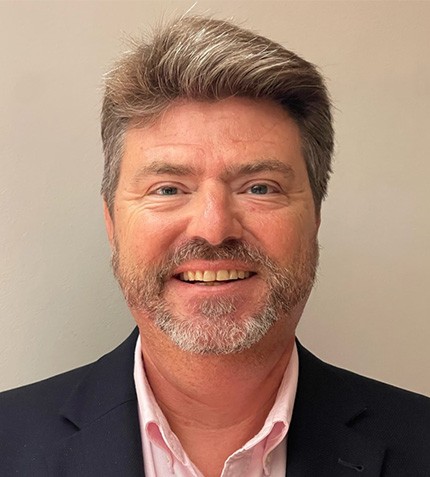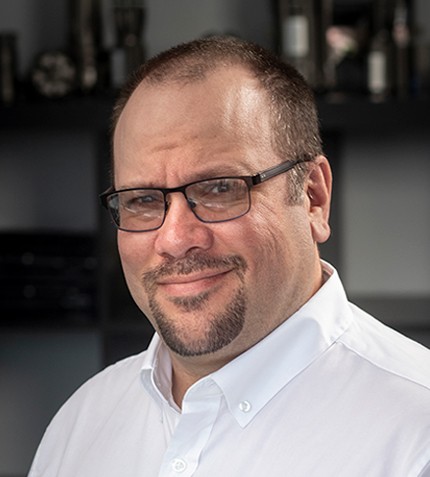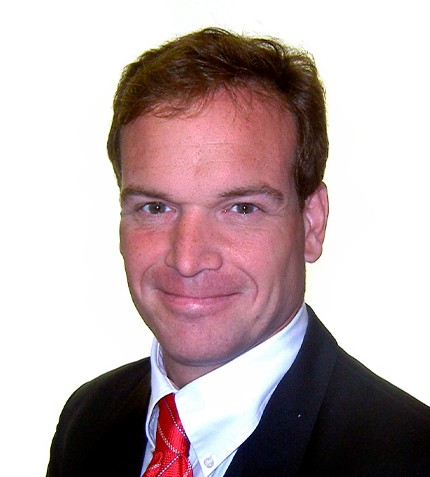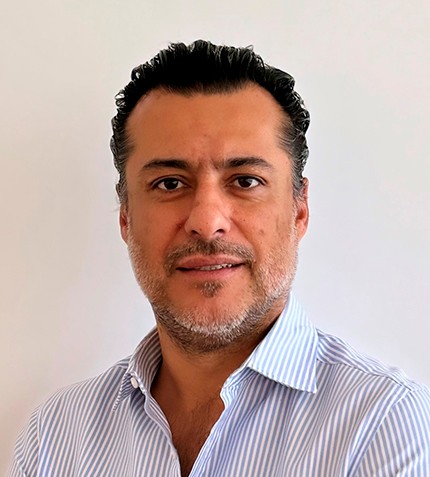
"Seeing our Congolese staff training foreigners on top-quality sampling techniques is incredibly rewarding."
Xavier “Jack” de Longueville
REGIONAL DIRECTOR AFRICA, ROBINSON INTERNATIONAL GROUP
What have been the main developments at Robinson International since last year?
We have seen double-digit growth for our environmental analysis business line, which represents a big chunk of our business today. The geological analysis unit also grew significantly, and we tripled the size of our lab team and created a new department for sample preparations. By the end of 2022, we think geological analysis will constitute the biggest part of our activity. Besides growing with a 15% larger team and doubling our lab equipment, we also became recognized as a referential service provider trusted to run audits and offer training in line with international standards. Seeing our Congolese staff training foreigners on top-quality sampling techniques is incredibly rewarding.
What is driving the growth of Robinson’s environmental services?
In the past, environmental analysis was done mostly by large European or American mining companies, but today the government is ordering all players to follow stricter rules in terms of chemicals spilling into the water and the soil. Also, previously, samples for environmental testing were sent abroad, primarily to South Africa, so we have worked hard and invested heavily in the past five years to create adequate in-country capacity and a much broader service offering: From offering eight types of analysis in 2021, we now provide 90 types.
How is the Congo managing the pandemic?
Covid is still a reality in the Congo, and the government has just passed a new set of confinement regulations. The country was less affected by those first waves that saw Europe in complete lockdown, and 2021 was almost normal for us. At mine sites where pandemic management conditions were very strict, normal shift changes could not take place and some staff were locked at the site for up to two months.
What have been the key regulatory changes in the DRC in the past few years?
The government’s decision to increase taxation for strategic minerals, including cobalt and lithium, has created a lot of stress in the country since it was passed a few years ago, and even more rampantly today. The requirement that all labs should be ISO accredited has come as a shock for many players in the country, but we see this as a positive development and a natural progression. What we find problematic are side-line opportunistic requirements asking, for instance, to obtain the ISO accreditation from a Congolese company, which is an unjustified way of making extra money. Together there are more and more government agencies all asking for independent audits and taxes. For example, instead of talking to one geology department, we need to see three or four of them, and we have just heard a new one has been created. While this is not a new trend, last year it exploded out of proportion. Finally, we note that there are more companies abiding by the subcontracting law and making the ARSP accreditation mandatory to apply to tenders.
How are inflationary pressures impacting the industry?
The supply and the cost of electricity have impacted our work most alarmingly. For almost a month and a half, we operated without a second of grid power, which drove our energy prices through the roof. It’s not just the rise in the cost of consumables and materials that worries us, but also the import-export taxes the government is adding on every truck moving in and out of the country. Sometimes trucks are stuck in over 70 km lines at the border where these controls are exercised – this results in a huge increase in purchasing costs for our equipment and consumables. I have seen many subcontractors disappearing in this environment, especially when they have to pay for more expensive equipment and for different layers of taxation.
What is your approach to training and inclusivity in the company?
We are very proud of our training program, which offers young graduates the opportunity to gain experience in our labs. Gender diversity is an important factor for us, and we have come a long way from 100% male staff to a 50-50% ratio today in our laboratory.










